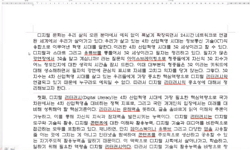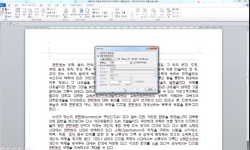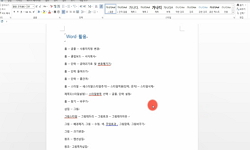The Passover is understood as an exemplary of the Pentateuch at all - the presence of the salvation of God in the past, and so break the so called writing prophets with the previously valid religious tradition in her two contradicting respects: The de...
http://chineseinput.net/에서 pinyin(병음)방식으로 중국어를 변환할 수 있습니다.
변환된 중국어를 복사하여 사용하시면 됩니다.
- 中文 을 입력하시려면 zhongwen을 입력하시고 space를누르시면됩니다.
- 北京 을 입력하시려면 beijing을 입력하시고 space를 누르시면 됩니다.
https://www.riss.kr/link?id=A99873278
- 저자
- 발행기관
- 학술지명
- 권호사항
-
발행연도
2013
-
작성언어
English
-
주제어
Sacrament ; Word ; Rite ; Passover ; Circumcision ; Blood of the Covenant
-
등재정보
KCI등재
-
자료형태
학술저널
-
수록면
7-35(29쪽)
- 제공처
-
0
상세조회 -
0
다운로드
부가정보
다국어 초록 (Multilingual Abstract)
The Passover is understood as an exemplary of the Pentateuch at all - the presence of the salvation of God in the past, and so break the so called writing prophets with the previously valid religious tradition in her two contradicting respects: The definitive act of God is only previously existent and it is hard to exist in the future. In Hosea(1,9), Symbolna measures of his second son with the deuterium word, "You are no longer my people appear, and I will not be there any more for you." Then Moses' appeal to "my people" takes pursuant promise: "I'll be there"(Ex 3,7.14 ) conversely. The Passatradition could be similar to Amos, after Yahweh to Israel absorb the critical "preplates"(Ex 12,23:12). The insight of the first writing prophets cycle is given as God's word in a vision: "I do not go(to my people gently) over again"(At 7.8, 8.2), and the prophecy of warning(5, 17) he gives in his preaching continued: "I walk through your center." Whichever currently guarded by the rite itself were affected. If no literal references are present, it is certain that "the end" has come for Israel(At 8,2; recorded Ez 7), at least materially, in contrast to the annual committed Passover and the saving faith currently obtained with it. To keep the Old Testament with the message of the prophets both criticism of one's own and faith tradition are contained. Perhaps the Priestly already met with their theological thinking of the prophetic announcement of judgment and they emphasize the experience of exile: The Community God and his people are not terminated and there is no time limitation. So a "new" device(Jer 31,31, Jes 43,18) is not required. It is rather the Passover that is required - similar to the circumcision(Gen 17,13P) - one for future generations, "statute"(Ex 12,14P). As the New Testament reformulated the deuteron word from the "blood of the covenant"(Ex. 24,8) in the Supper words, "This is my blood of the covenant"(Mark 14:24). So it takes most of the Passover smoke the appropriate supporting expression "for memory"(Ex 12:14, etc.). It continuously retains the basic structure of referring back to the past, but this refers strictly to Jesus again: "Do this in memory of me"(1Cor 11,24f, Lk 22,19). Likewise, as in the Passatradition(Ex 12,27, etc.), put into each present generation in the salvation that is identified with the former: "for you"(1Corinthians 1.1,24, Luke 22,19). Here is not a continuity in time understanding noticeable? In contrast, Passatradition(esp ex 12) is an eschatological outlook "up to that day, in the Old Testament(Mark 14,25)," "until he comes"(1Cor 11,26). And at least it is not directly witnessed and it seems that it is still unknown that he would rather come with prophetic spirit.
목차 (Table of Contents)
- I. Einleitung
- II. Ritus und deutendes Wort
- III. Deutungen eines Ritus zur Blut des Bundes
- IV. Integration eines Ritus der Beschneidungin in AT
- V. Vergegenwärtigung heilvoller Vergangenheit in Ritus und Wort des Passa
- I. Einleitung
- II. Ritus und deutendes Wort
- III. Deutungen eines Ritus zur Blut des Bundes
- IV. Integration eines Ritus der Beschneidungin in AT
- V. Vergegenwärtigung heilvoller Vergangenheit in Ritus und Wort des Passa
- VI. Schlußfolgerung
- Bibliography
- Abstract
동일학술지(권/호) 다른 논문
-
- 한국실천신학회
- Cho, Kee Yeon
- 2013
- KCI등재
-
Gottesdienst im Alltag : - Der Sinn des Sonntags in Hinsicht auf evangelische Ethik -
- 한국실천신학회
- Hong, Soon Won
- 2013
- KCI등재
-
- 한국실천신학회
- Kim, Hyung Rak
- 2013
- KCI등재
-
- 한국실천신학회
- Ahn, Deok Weon
- 2013
- KCI등재





 eArticle
eArticle






